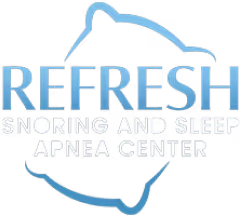We all know the classic scenario—a night out with friends, a few too many drinks, and then struggling to fall asleep or waking up feeling groggy. Caffeine, on the other hand, is a stimulant known for keeping us alert. A caffeine and alcohol mix is a disaster.
1. Countering Each Other's Effects (to an Extent)
One surprising finding is that these substances may counteract each other's effects on sleep duration. Studies like one from the University of Washington followed financial professionals who regularly consumed both substances.
Researchers initially expected a double whammy on sleep quality and duration. However, they found that alcohol's sleep-disruptive effects were somewhat mitigated by caffeine.
It's important to note that this doesn't mean a nightcap and a coffee chaser is a good sleep strategy. The counteracting caffeine and alcohol effects were modest, and sleep quality likely still suffered.
Additionally, this was observed in a specific group — people with a potentially high tolerance to both substances.
2. A False Sense of Alertness
While caffeine might make you feel more awake after a night of alcohol-induced sleep disruption, it's not restoring proper alertness.
Alcohol disrupts the natural sleep cycle, including REM sleep. This cycle is crucial for cognitive function, memory consolidation, and emotional processing.
Caffeine can mask this grogginess but doesn't address the underlying sleep debt. It can lead to impaired judgment, decreased reaction time, and even safety risks despite feeling awake.
3. Increased Anxiety and Restlessness
Both alcohol and caffeine can act as stimulants for some people, particularly those with anxiety disorders. Combining them can exacerbate anxiety and restlessness, making it even harder to fall asleep.
It can create a vicious cycle, with people relying on more alcohol or caffeine to cope with the sleep problems caused by the previous night's consumption.
4. Dehydration and Sleep Disruption
Both are diuretics, which means that they increase urination and can lead to dehydration. Dehydration disrupts sleep architecture, making sleep lighter and less stimulating.
It can worsen the adverse effects of both substances on sleep quality. Even mild dehydration from mixing caffeine and alcohol can lead to increased sleep fragmentation and awakenings at night.
5. Disrupted Sleep Patterns and Circadian Rhythms
Our bodies have a natural sleep-wake cycle. Light exposure and internal cues regulate this cycle. Both these substances can disrupt these rhythms. Caffeine later in the day can interfere with the body's natural production of melatonin, a hormone that promotes sleepiness.
Alcohol can also suppress melatonin production and fragment sleep. Unfortunately, it could lead to frequent awakenings throughout the night. Over time, this disruption to our circadian rhythm can make falling and staying asleep harder.
6. Potential Dependence and Increased Tolerance
Regularly using alcohol and caffeine to manage sleep problems can lead to dependence on both substances. It can create a cycle where even more is needed to achieve the desired effect, further disrupting sleep in the long run.
Dependence on caffeine can result in withdrawal symptoms like headaches, fatigue, and irritability when trying to cut back. Similarly, alcohol dependence can lead to a variety of physical and mental health problems.
So, What Should You Do?
It's best to limit or avoid both substances for a good night's sleep, particularly close to bedtime.
Here are some tips:
- Caffeine, alcohol, and fatigue can be likely causes for disrupted sleep patterns and reduced sleep quality. So, avoid caffeine in the afternoon and evening.
- Aim to finish your last caffeinated beverage at least six hours before bedtime. Some people may be more sensitive to caffeine, so they may need to avoid it even earlier in the day.
- Limit alcohol consumption, incredibly close to bedtime. Alcohol may initially make you feel drowsy, but it disrupts sleep later in the night.
Sleep Better With Us!
Establish a relaxing bedtime routine to wind down before sleep. It could include taking a warm bath, practicing relaxation techniques, deep breathing, or meditation.
You can make informed choices by understanding how caffeine and alcohol impact sleep.
You can also promote better sleep hygiene and overall well-being. Remember, a good night's sleep is essential for physical and mental health — prioritize it, and your body will thank you.
Do snoring, restless nights or daytime fatigue disrupt your life? Talk to Refresh Snoring & Sleep Apnea Center for a personalized sleep evaluation and path to better sleep!

.svg)




